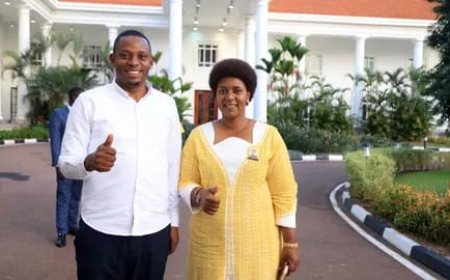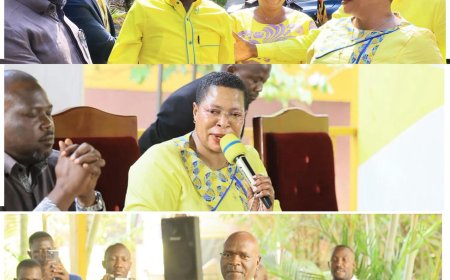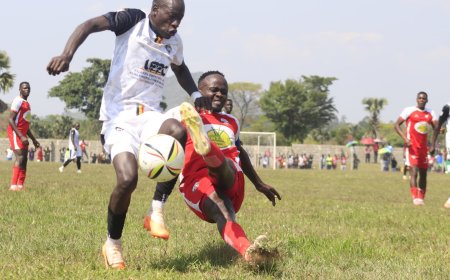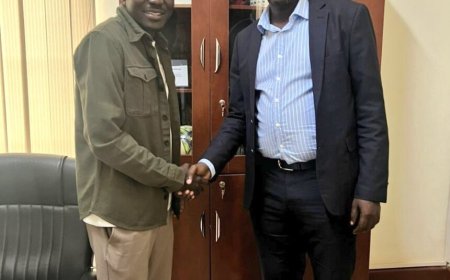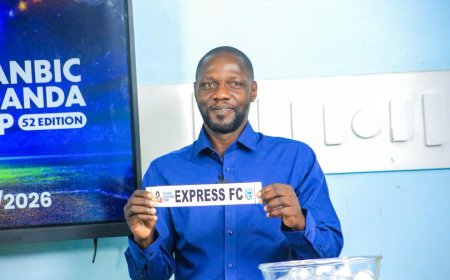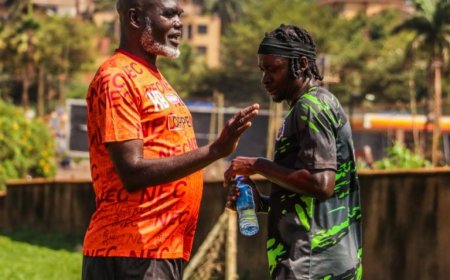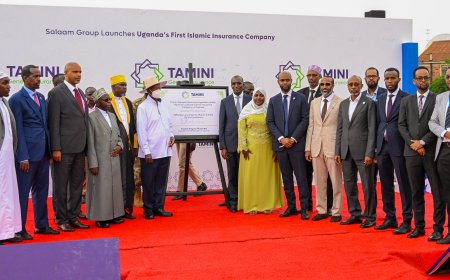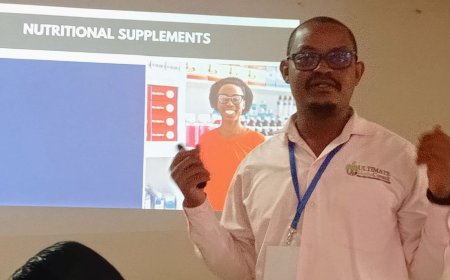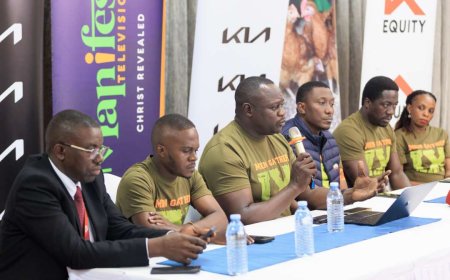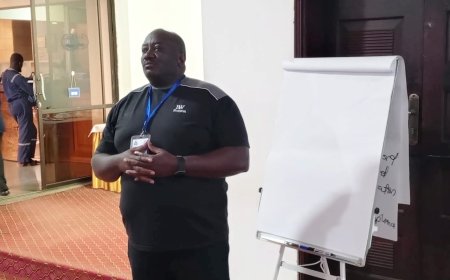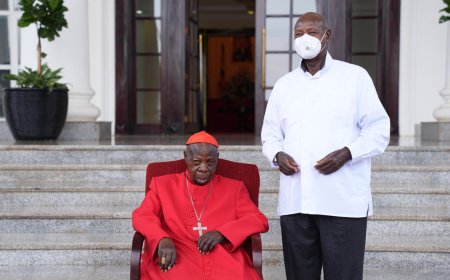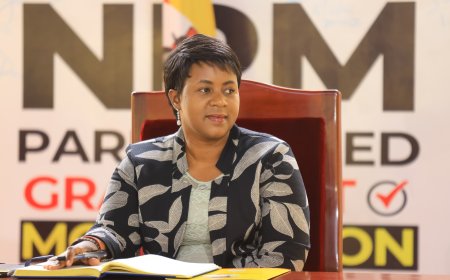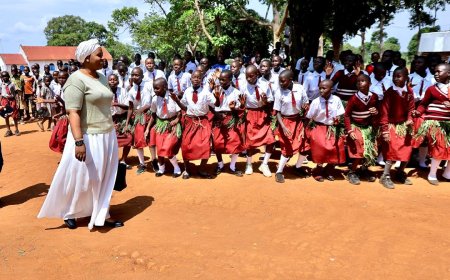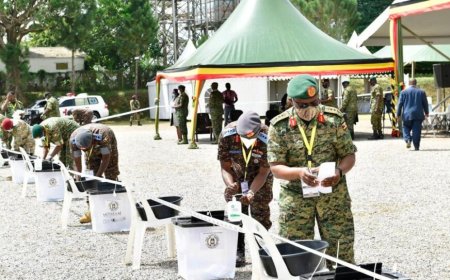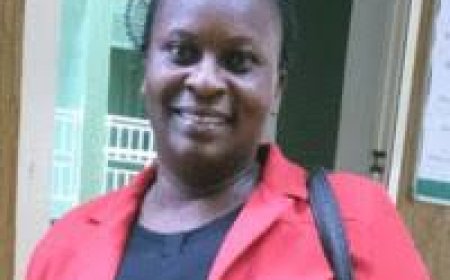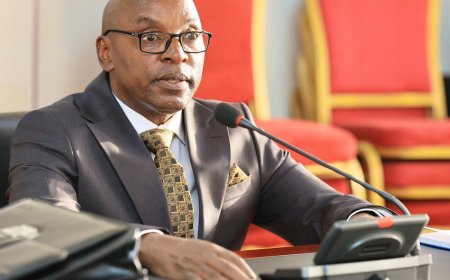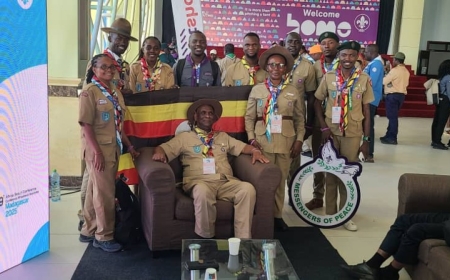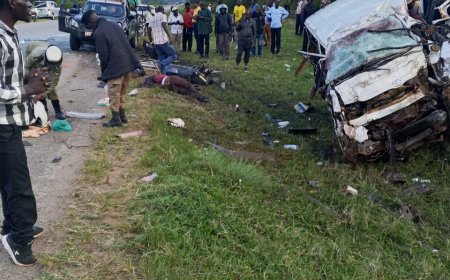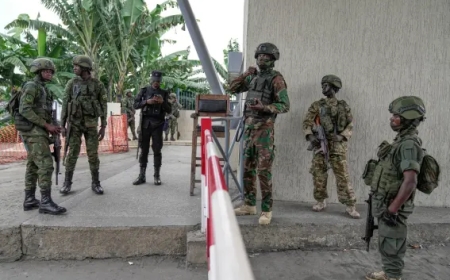President Museveni Chairs AU Peace and Security Council Session on Libya, Calls for African-Led Solution
Virtual meeting underscores urgency of ceasefire, removal of foreign mercenaries, and inclusive Libyan elections
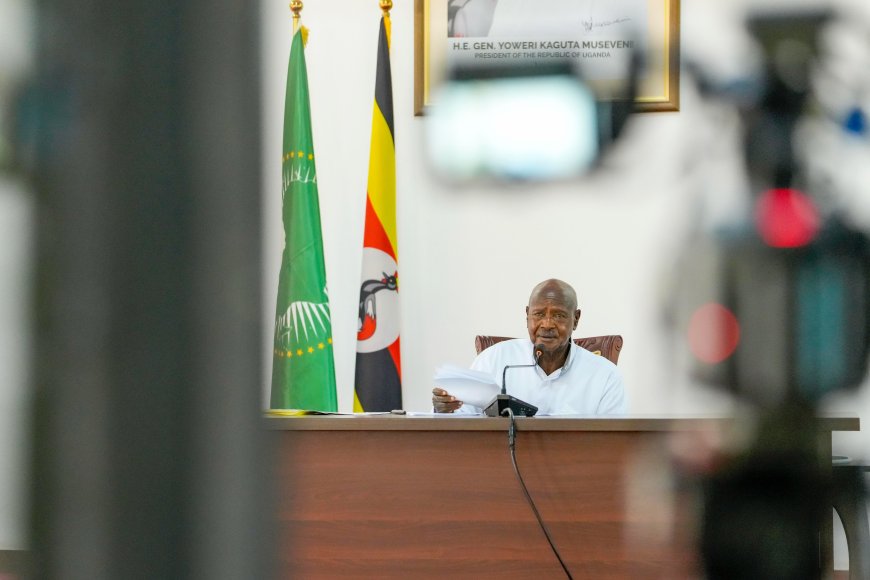
President Yoweri Kaguta Museveni of Uganda, in his capacity as Chairperson of the African Union (AU) Peace and Security Council (PSC) for the month of July, chaired a high-level virtual meeting focused on the ongoing situation in Libya. The meeting, convened to assess the political, security, and humanitarian challenges facing Libya, culminated in a communique from the AU Secretariat, with President Museveni issuing a bold seven-point statement emphasizing Africa's responsibility in resolving the crisis.
In his remarks, President Museveni expressed deep concern over the prolonged instability in Libya and the lack of a cohesive African response to the crisis that has persisted since the fall of Muammar Gaddafi in 2011. His message underscored both the urgency and the opportunity for African nations to reclaim leadership in steering Libya toward peace and democratic governance.
President Museveni’s Key Points on Libya:
Commendation of Congo-Brazzaville’s Leadership
President Museveni opened by acknowledging the ongoing efforts of H.E. President Denis Sassou Nguesso of the Republic of Congo, who serves as the Chairperson of the African Union High-Level Committee on Libya. Museveni lauded Sassou Nguesso for his persistent commitment to peace-building and dialogue facilitation among Libya’s divided factions.
“We thank H.E. President Denis Sassou Nguesso for the great work done so far as the chairman of the high-level committee on Libya,” Museveni noted.
Call for Continued Ceasefire
Museveni stressed the absolute necessity of maintaining the ceasefire agreement brokered in 2020 between rival Libyan forces. He warned that renewed violence would only deepen the crisis and prolong the suffering of Libyan citizens.
“We demand that the ceasefire be maintained because fighting will not bring any solutions.”
Non-Interference by Foreign Powers
President Museveni reiterated Africa’s longstanding opposition to foreign meddling in internal affairs, pointing to Libya as a stark example of the dangers of external intervention. He called for an immediate halt to all forms of foreign interference, including political manipulation and covert military support.
“No meddling by foreign countries,” he stated firmly.
Withdrawal of Foreign Fighters and Mercenaries
Museveni condemned the continued presence of foreign fighters and mercenaries on Libyan soil, noting their destabilizing role in undermining peace processes and exacerbating internal divisions.
“Foreign fighters and mercenaries must leave Libya,” he demanded.
Inclusive Libyan-Led Dialogue
Recognizing that sustainable peace must come from within, Museveni urged that all Libyan stakeholders be included in national dialogue processes. He emphasized the importance of inclusive consultations, facilitated by African mediators such as President Sassou Nguesso.
“ALL Libyans should participate in the dialogue under President Denis Sassou Nguesso and the other facilitators,” he said.
National Elections as a Pathway to Stability
Museveni highlighted the need for free, fair, and inclusive national elections as a long-term solution to Libya’s political impasse. He drew parallels to other African nations that have transitioned through electoral processes.
“Have elections where all Libyans participate as a solution to the problem of Libya, as it has been for all other countries,” he added.
Call for Continental Action
In a particularly forceful conclusion, Museveni challenged the African Union and its member states to take collective responsibility for Libya’s crisis. He lamented Africa’s passivity in the face of what he termed “criminal activity,” calling for decisive and united action.
“It is a shame that Africa has allowed this criminal activity to go on. We ought to get together and do something about Libya.”
President Museveni’s address was not just a call to action but a reminder of Africa’s potential to resolve its own conflicts. He stressed the need for African solutions to African problems, rejecting imposed models of governance or military interventions that disregard local realities.
The Libyan crisis remains one of the continent's most complex and consequential conflicts. With rival administrations in the east and west of the country, a fragile ceasefire, and unresolved questions around national elections, the road to peace is uncertain. However, with reinvigorated leadership from African heads of state and institutions such as the AU PSC, hope remains.
The communique from the Peace and Security Council reaffirms the AU’s commitment to supporting Libyan-led reconciliation efforts and calls on the international community to respect Libya’s sovereignty and support the withdrawal of foreign forces.
President Museveni’s leadership in this session signals Uganda’s growing diplomatic role on the continent, particularly in areas of conflict resolution and pan-African solidarity.
As Chair of the PSC for July, Museveni has made clear that Africa must not watch from the sidelines as one of its own remains trapped in turmoil. “This is our continent,” he said, “and we must take responsibility for its peace and prosperity.”
